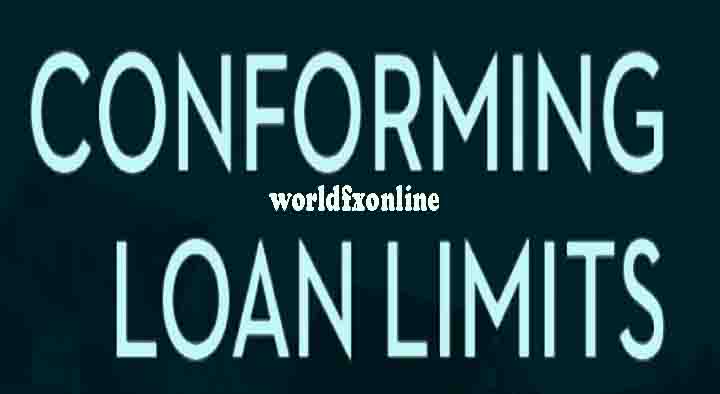Conforming loans are currently the most common on the market and the most beneficial for both lenders and buyers. If you are in the market to buy a home, it pays to know how you can qualify for a conforming loan and make the most of your mortgage financing.
Table of Contents
What is a Conforming loan?
A conforming loan is a mortgage that meets the guidelines of Fannie Mae and Freddie Mac. Conforming lenders underwrite and fund loans and then sell them to investors such as Fannie Mae and Freddie Mac.
Once securitized, the loan is sold to investors in the open market. Because of their liquidity and government regulations, conforming loans often have lower interest rates than non-conforming loans.
How does a conforming loan work?
When buyers look at their mortgage options, they will find a variety of mortgages, including FHA, VA, USDA, and traditional/ancillary loans.
It is often difficult for buyers to distinguish between loans when applying or underwriting. Nevertheless, government-backed loans (FHA, USDA, VA) and Conforming loans have much lower underwriting requirements than some types of non-conforming loans, such as jumbo loans.
There are some strict guidelines for complying with the loan, but you will pay for the mortgage insurance for a shorter period of time (if applicable) and save more money over the term of the loan.
You May Also Like: VA Home Loan Refinance
Conforming loan vs. non-performing loan
A conventional loan that does not meet the criteria for purchase by Fannie Mae or Freddie Mac is referred to as a non-collateral loan. A common type of non-conforming loan is a jumbo loan. Jumbo loans are loans that exceed the conforming loan limit.
Generally, non-conforming loans have high-interest rates and the required down payment. The borrower’s eligibility guidelines for non-compliant loans differ from the lender to the lender.
Rocket Mortgage offers jumbo smart loans, up to $ 2.5 million for a 30-year fixed loan home loan and up to $ 2 million for a 15-year fixed and 7-year adjustable-rate mortgage (ARMs).
Down payment and credit score requirements will vary depending on the loan terms, how much you plan to borrow, and the size of your down payment. Remember that no personal mortgage insurance (PMI) is required.
The other most common types of non-conforming loans are the Federal Housing Administration (FHA), Veterans Administration (VA), and U.S. Federal Housing Administration (VA). There are government-insured loans through the Department of Agriculture.
Other types of non-conforming loans are designed for borrowers who do not meet credit standards. In many cases, self-employed or seasonal workers find it difficult to provide adequate verification of their income and have to rely on non-conforming loans to buy a home.
Loans designed for borrowers with previous negative credit items may come with higher interest rates.
What is the conforming loan limit?
Basically, a Conforming loan is a home loan that does not exceed a certain dollar amount. The amount of that dollar is determined each year by the FHFA. The national standard credit limit for 2022 is $647,200 However, in many high-value areas, there should be no housing at the upper limit. In this high-cost area, the limit is $970,800.
In order to consider a conventional loan as a Conforming loan, the loan amount must be less than the limit set by the FHFA.
Benefits Of Conforming Loans
There are significant benefits to borrowing in accordance with the guidelines set by Fannie Mae and Freddie Mac.
Low-interest rate
Conforming loans typically offer low-interest rates to borrowers with high credit scores, making them a better option if your goal is to pay less monthly.
Offers with traditional loan pre-approval letters are more popular among sellers because FHA assessments are considered more difficult than standard assessments.
Consumer Protection Guidelines
Conforming loans have standard guidelines and forms to protect borrowers and lenders from bad credit practices. Without proper verification of income, assets, and credit history, lenders can no longer offer mortgages and lend money to borrowers who have no means of repaying them.
Occupancy flexibility
Traditional loans can only be used to buy you vacation home. Additionally, Conforming loans are the only ones you can use to purchase a non-owner-occupied residential investment property.
Down payments and interest rates are a bit higher for second homes and rental properties, but this is an option.
Ability to shop around
Conforming loans are offered by different lenders, giving you the opportunity to compare services and prices. Also, due to the required disclosure, you will have a complete breakdown of the lender’s estimated costs right after the pre-approval, which makes it easier to compare multiple pre-approval offers.
Mortgage insurance removal
If you make a down payment of more than 20%, you do not have to pay for mortgage insurance on a traditional loan. You pay for mortgage insurance, you can request removal for access to 20% equity if it is based on payment only, not a home improvement. Grow improvements or price increases are involved but it becomes more complicated.
Bottom line
Conforming loans are generally preferred by those who want to avoid high-interest rates and represent the largest portion of home loans.
Want to know more about how to shop for the best mortgage? Our education center has all the information you need as you go through the process of buying a home.
You May Also Like: What Is a USDA Home Loan?

